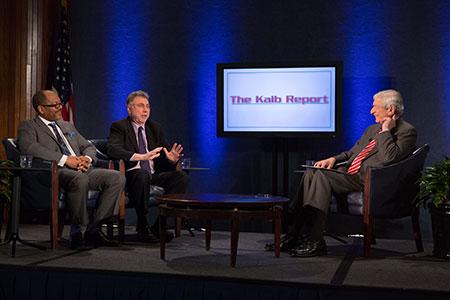
Let's imagine for a moment that 22 Arab nations agree to recognize Israel. Not bad, you say; totally unrealistic, you add. And yet, ever since 2002, this possibility has been on the negotiating table in the Middle East. Of course, for this to happen, the Israelis would have to withdraw to their 1967 borders—something the Israelis have refused to do. This idea was proposed by Saudi Arabia, and at the time it was a surprise and, for many students of the Middle East, a revolutionary concept. Despite many temptations and provocations, the Saudis have never retracted it. It is about time, in my judgment, for Israel to accept it as the basis for a settlement, first, with the Palestinians and second with the rest of the Arab world.
Why? Timing, to begin with.
Ever since the United States and Iran began to negotiate an agreement that would, at least theoretically, end Iran's pursuit of nuclear weapons, Saudi Arabia and Israel have found themselves in an odd alliance—two bitter antagonists, normally in disagreement about most things, both at this time sharing a common distrust of the ultimate outcome of this negotiation. Neither trusts Iran.
This fact, among others, prompted Secretary of State John Kerry to fly to Riyadh, capital of Saudi Arabia, last weekend, at the end of his tenth visit to the Middle East since leaving the Senate—this visit, like the other nine, devoted to trying to bridge the gaps between the Israelis and the Palestinians over a final peace agreement. He was not successful, but this was not exactly a bulletin. He knew in advance that he would not be successful. For that reason, he suggested that both sides consider a framework agreement, but here too there was no real progress. Enter Saudi Arabia. Kerry flew to Riyadh to win Saudi support for his idea of a framework agreement—and for another reason, too.
According to a Palestinian newspaper, Al-Ayyam, considered moderately reliable, Kerry confirmed that the Saudis were still committed to their 2002 proposal and then he proposed that the Saudis agree to amend their proposal by adding a key phrase demanded by the Israelis—that in the concluding document affirming an Israeli-Palestinian peace agreement that Israel be recognized as "a Jewish state." Kerry also proposed that there be specific language that Israeli Arabs be regarded as citizens equal in rights and privileges to Jewish citizens—something the Palestinians have demanded.
Within the next week or two, Kerry will be meeting in Paris with Arab foreign ministers, hoping to push for acceptance of his proposed changes to the 2002 Saudi proposal. He believes that such Arab acceptance could help his negotiation with the Israelis and the Palestinians.
The Israelis could help themselves by changing their public attitude toward the Saudi plan. It has always been negative. It could now become, if not positive, then at least open to using the Saudi plan as a basis for their negotiation with the Palestinians. And if the plan contained language recognizing Israel as a "Jewish state," it could go a long way towards easing Israeli anxieties about any deal with the Palestinians.
Uri Dromi, a respected Israeli journalist, has been pushing this idea in recent columns. Let's hope he gets many readers, and supporters. It's time for something unusual but at the same time practical.




